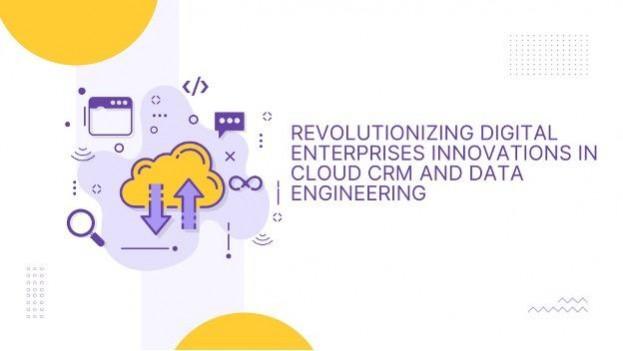
Modern world enterprises are experiencing a transformation through the integration of Cloud Customer Relationship Management (CRM) systems, data engineering, and advanced analytics. Nethaji Kapavarapu, an expert in enterprise architecture and data engineering, examines how these innovations are redefining digital ecosystems. His insights highlight the convergence of cloud technology and AI-driven analytics, paving the way for enhanced business intelligence and operational efficiency. As organizations adopt these advancements, they gain deeper insights, streamline processes, and improve customer engagement on a larger scale.
Cloud-Based CRM: The Core of Modern Business Operations
Cloud CRM platforms have become powerful tools for managing vast customer data with exceptional efficiency. By integrating AI and machine learning, businesses can automate workflows, improve customer engagement, and optimize operations. These systems handle millions of interactions daily while ensuring high availability and robust security, enabling organizations to enhance efficiency, streamline processes, and deliver personalized customer experiences at scale.
The Power of AI in CRM Systems
Artificial intelligence has transformed CRM by introducing predictive analytics, personalized interactions, and automated decision-making. AI-driven CRM systems enhance customer retention by analyzing behavior and providing real-time recommendations. Businesses leveraging AI in their CRM strategies experience higher revenue per sales representative and reduced customer churn. With smarter insights and automation, AI empowers organizations to optimize engagement, improve sales performance, and drive long-term customer relationships effectively.
Seamless Integration Through API-First Architectures
Modern enterprises adopt API-first integration strategies to connect diverse applications seamlessly. API-driven ecosystems facilitate efficient data exchange, lowering development costs and enhancing agility. By handling billions of API calls each month, businesses achieve greater scalability, robust security, and improved service reliability, ensuring streamlined operations and enhanced digital transformation efforts.
The Role of Hybrid Cloud Architectures
Hybrid cloud architectures provide organizations with the flexibility to optimize resources while ensuring data security and regulatory compliance. These systems integrate on-premises infrastructure with cloud-based services, allowing businesses to balance scalability with control. Advanced hybrid implementations achieve near-perfect uptime and significantly reduce data processing latency.
Enhancing Data Security in Digital Transformation
As enterprises embrace digital-first strategies, cybersecurity remains a major concern. Implementing intelligent security frameworks, real-time monitoring, and automated threat detection helps mitigate risks effectively. Organizations that invest in robust security protocols experience fewer unauthorized access attempts and breaches, ensuring strong data protection, operational resilience, and business continuity in an increasingly digital and interconnected environment.
Microservices: The Future of Scalable Systems
Microservices architecture has transformed enterprise scalability and reliability. Businesses leveraging microservices benefit from faster deployments, enhanced system resilience, and lower operational costs. Automated service recovery ensures continuous availability and minimizes downtime, enabling organizations to maintain efficiency, adaptability, and seamless performance in dynamic digital environments.
Driving Business Growth with Advanced Analytics
Advanced analytics tools help enterprises understand customer behavior, optimize operations, and track market trends. Real-time data processing enhances decision-making, while machine learning boosts predictive accuracy. Businesses using analytics see significant gains in customer engagement and revenue, enabling smarter strategies and improved overall performance in a competitive landscape.
Best Practices for Implementation Success
To maximize the potential of these innovations, organizations must implement structured strategies. Success relies on meticulous planning, comprehensive user training, and selecting the right technology partners. Businesses that emphasize these best practices achieve higher adoption rates, reduce project risks, and boost operational efficiency, ensuring long-term growth and a smooth digital transformation journey.
In conclusion, integrating Cloud CRM, data engineering, and AI-driven analytics is essential for businesses to achieve sustained growth in the digital era. Leveraging these advanced technologies enables enterprises to enhance customer experiences, streamline operations, and stay competitive. Nethaji Kapavarapu highlights that organizations adopting these innovations will effectively navigate digital transformation challenges and drive long-term success in an evolving business landscape.















